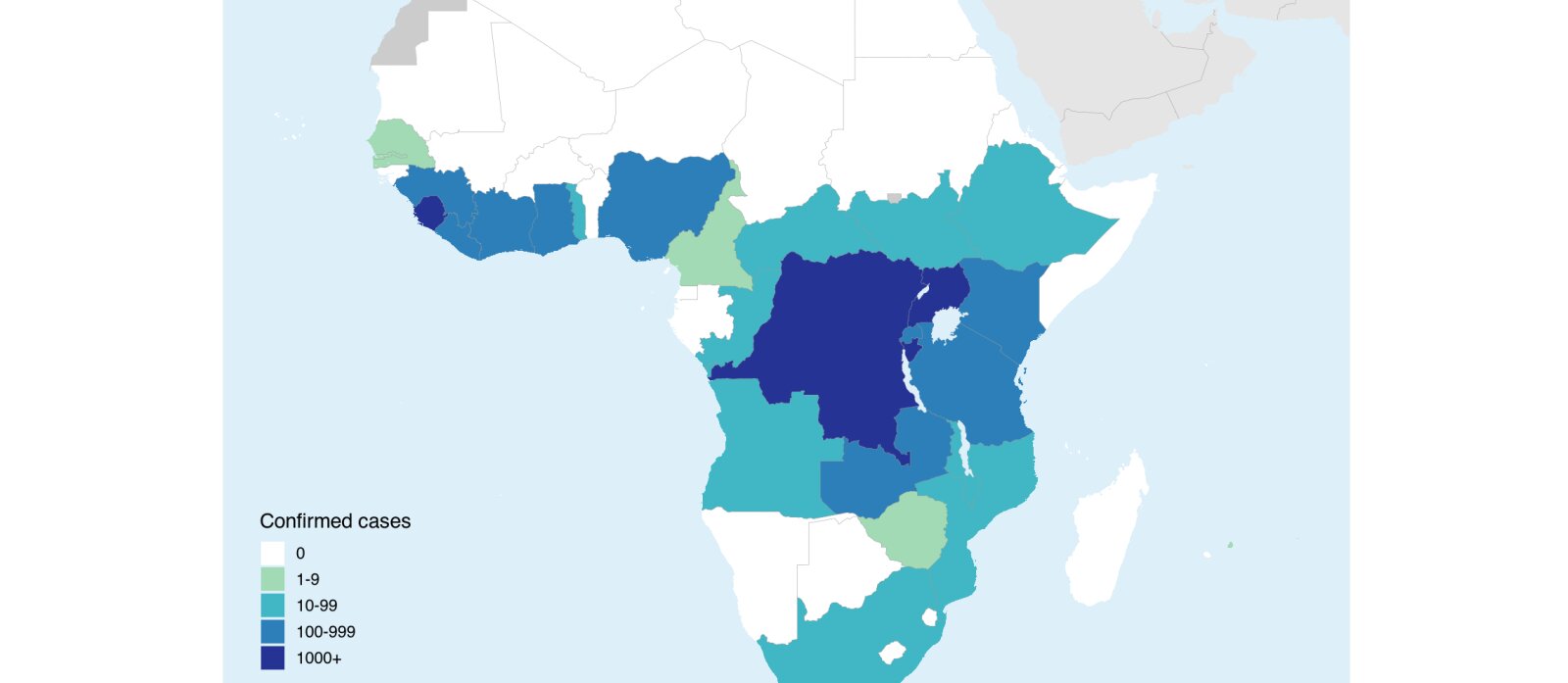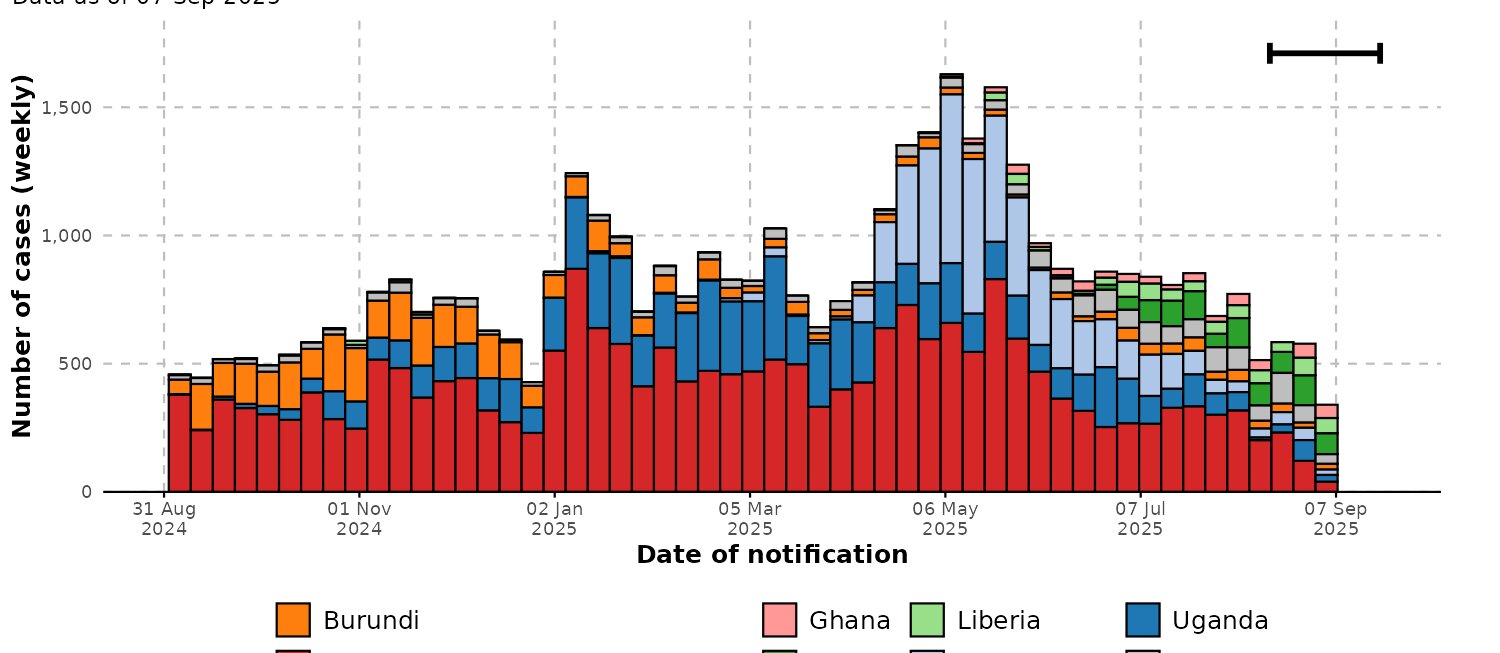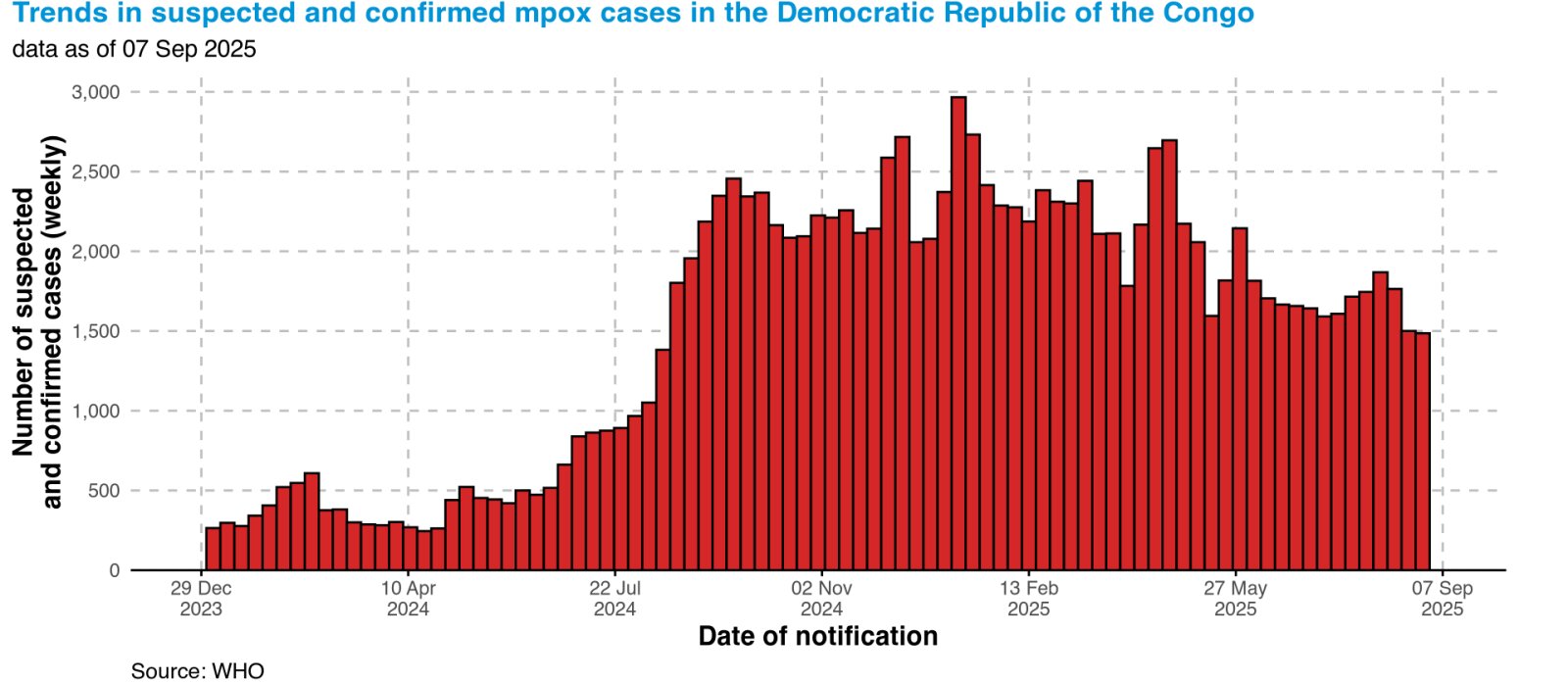Mpox, previously known as Monkeypox, is a viral disease caused by the mpox virus, transmitted through close contact with infected animals, humans, or contaminated materials. While it usually results in mild symptoms, it can lead to severe complications and high mortality, especially among vulnerable groups like pregnant women and young children. There are two variants of mpox: clade 1 and clade 2, with subvariants clade 1a, clade 1b, clade 2a and clade 2b.
Since November 2023, mpox cases caused by the mpox virus Clade 1 have considerably increased in the Democratic Republic of Congo. For recent numbers, see this webpage of the World Health Organization (WHO).
Neighboring countries such as Burundi, Rwanda, Uganda, and Kenya have also reported Clade 1b infections, while Clade 1a cases have been confirmed in the Republic of the Congo and the Central African Republic. Imported cases have been documented in Sweden and Thailand, linked to travel from African countries with ongoing transmission.
In August 2024, the WHO declared the outbreak of mpox a Public Health Emergency of International Concern (PHEIC), following recommendations of the International Health Regulations Emergency Committee. The risk of further regional and international spread is high, and a coordinated global response is needed. The emergence of Clade 1b emphasized the importance of enhanced surveillance, equitable vaccine access, and strong public health interventions to control the outbreak and prevent a recurrence of the global mpox crisis seen in 2022.
The declaration of mpox as a PHEIC triggered Global Health EDCTP3 to mobilise emergency funding to tackle this outbreak. Global Health EDCTP3, spearheading the response to the mpox outbreak by supporting projects researching mpox, decided to fast-track funding for the best scientific mpox research proposals. Five projects were chosen to start on the 1st of August 2024, of which our PregInPoxVac project is one. Later, four additional projects were funded.
As the scope of the PregInPoxVac project was already broader in the proposal than what the EDCTP3 funding could cover, additional research funding was sought and obtained via the Coalition for Epidemic Preparedness Innovations (CEPI). CEPI is supporting research efforts to accelerate new mpox vaccines and expand access to existing vaccines to help tackle mpox outbreaks. CEPI's goal to expand access to currently licensed mpox vaccines to those most at risk fully aligns with the goals of our PregInPoxVac project, and will help end the current mpox outbreak and better prepare the world to respond to subsequent mpox outbreaks.
With the combined funding of the EDCTP3 emergency call and CEPI, this study will generate evidence about the mpox vaccine in endemic populations. This will help inform vaccination strategies, prevent new outbreaks, and accelerate regulatory approval in mpox endemic countries.


